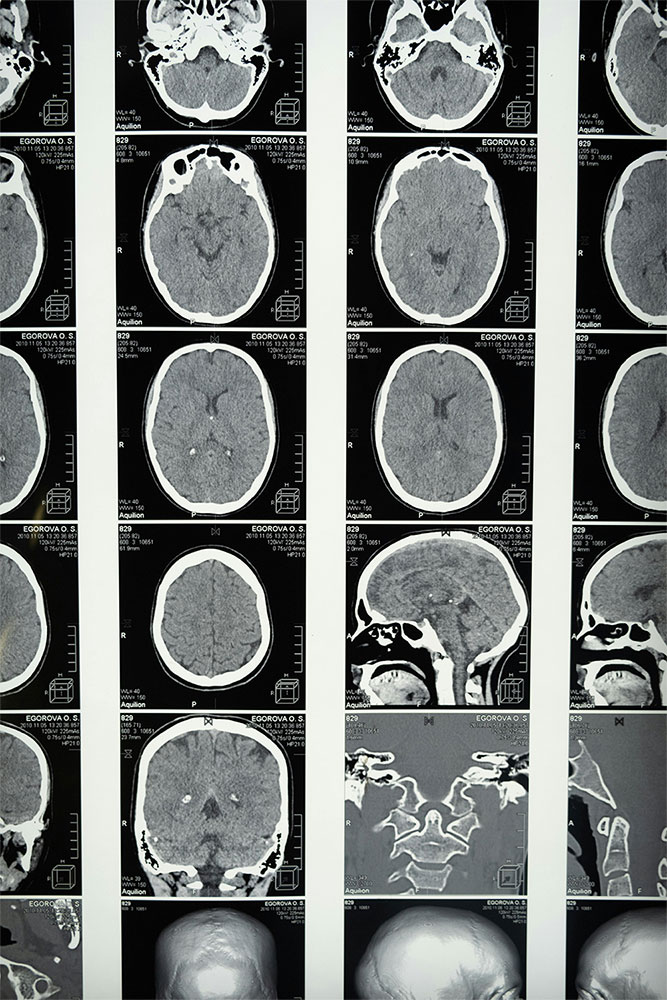Alcohol-related dementia is a devastating condition resulting from the long-term, excessive consumption of alcohol. It leads to a decline in cognitive function, memory loss, and behavioral changes, significantly impacting an individual’s quality of life. This guide explores the causes, symptoms, treatment options, and preventive measures for alcohol-related dementia, shedding light on the profound consequences of alcohol abuse on brain health.

Christopher Ravn
Key Takeaways
1. Alcohol-related dementia (ARD) is a progressive cognitive decline caused by long-term, excessive alcohol consumption.
2. Early signs of ARD include memory loss, difficulty with daily tasks, and irritability, but the condition can worsen over time.
3.While some studies suggest moderate drinking may reduce dementia risk, excessive alcohol consumption is a significant risk factor, and the exact mechanisms behind alcohol-related dementia are still under research.
Table of Contents
1. What Is Alcohol-related Dementia?
2. What are the Symptoms of Alcohol-Induced Dementia?
3. Is It Possible To See The Signs Of Alcohol-Induced Dementia?
4. What Causes Alcohol-related Dementia?
5. Can Drinking Alcohol Lead To Dementia?
6. Memory Loss And Other Effects Of Dementia From Alcoholism
7. How is Alcohol-Related Dementia Diagnosed?
8. What are the Treatment and Management Options for Alcohol-related Dementia?
9. Can Brain Damage from Alcohol Be Reversed?
10. What is Wernicke-Korsakoff Syndrome and How Does it Relate to Alcohol-related Dementia?
11. What is the Life Expectancy of Someone with Alcohol-related Dementia?
12. How Do Vascular Dementia And Alcohol Relate?
13. What are the Controversies Surrounding Alcohol-Related Dementia?
14. Frequently Asked Questions About Alcohol-related Dementia
What Is Alcohol-related Dementia?
Alcohol-related dementia (ARD) or alcohol dementia, takes place due to excessive long-term alcohol consumption. This type of dementia gradually affects cognitive function, resulting in impaired judgment, memory loss, language difficulty, problem-solving, and issues with motor skills and coordination.
The characteristics and impact are on the brain’s neurons and its brain cells. This weakens brain function, thus leading to a myriad of cognitive and behavioral issues.
The healthcare industry needs more research as it is still not fully understood about the relationship between chronic alcoholism and dementia. However, one should know that chronic alcoholism damages neurons and brain cells, which leads to the development of dementia.
Alcohol-related dementia is different from other types of dementia, such as vascular dementia. This is because it has unique symptoms that are linked to chronic alcohol abuse.
What are the Symptoms of Alcohol-Induced Dementia
- Difficulty remembering events and picking up new information.
- Unable to make decisions, issues in problem-solving, and a decline in their ability to think critically.
- Experiences changes in mood such as feeling anxious, depression, or mood swings.
- Problems remembering their bearings, or can’t tell the time and place.
- Issues include finding the correct words, communication, and slurring.
- Personality changes when the person is withdrawn and unable to regulate emotions.
- Issues with balancing, walking, and coordination.
- Sleep issues such as excessive sleepiness, insomnia, and daytime fatigue.
- Early stages showcase mild symptoms and may not be noticeable at first. However, they may be able to work independently. If a spouse has mild cognitive impairment, then it is essential to know about living with a spouse with mild cognitive impairment.
- The middle stage is where the symptoms are more noticeable. The person may show signs of mood swings, memory loss, and issues with daily activities.
- In the late stages, the person may go through significant cognitive decline whereby they cannot communicate.
- In the terminal stage, the person may go through significant physical and cognitive decline. They will need round-the-clock care and support.

Is It Possible To See The Signs Of Alcohol-Induced Dementia?
Yes, it is possible to see the signs of alcohol-induced dementia. The patient will be unable to express themselves, have difficulties with daily tasks, have signs of irritation, have an increased risk of falling, and have difficulty remembering.
Risk Factors for Younger Individuals
- Excessive alcohol drinking and alcohol use disorders (AUDs) have been linked with an increased risk of dementia in younger individuals.
- Adults who are 64 years of age and younger may exhibit susceptibility to the negative impact of alcohol on the brain, thus leading to a higher risk of dementia.
- People with lower socioeconomic status (SES) are prone to dementia and those who drink moderately and are from lower SES may be more likely to develop dementia.
- People who are leaner, physically active, drink moderately, and have higher SES may be less likely to develop dementia. This is because of the protective effects that their lifestyle offers.
- Those who are younger and constantly consume alcohol and have health conditions such as hypertension, diabetes, and cardiovascular diseases are also prone to dementia.
- Even those who have issues with brain structure and function and consume a lot of alcohol are susceptible to dementia.
Join families who have found relief with EVY LIGHT®
Click below to see how EVY LIGHT® is helping others
What Causes Alcohol-related Dementia?
- Too much alcohol intake damages the brain, impairing neurons, and cognitive function.
- Malnutrition is due to excessive drinking, which causes vitamin B1 deficiency.
- Deficiency of vitamin B1 in the brain.
- Shrinking of the brain due to alcohol abuse.
- Psychiatric issues tied to excessive alcohol consumption in those with depression, anxiety, and psychosis.
Can Drinking Alcohol Lead To Dementia?
- Excessive drinking leads to a reduction of white matter in the brain. White matter is important in transmitting signals between different brain regions, and this impairment leads to the risk of dementia.
- Heavy drinking may cause an imbalance in the production of reactive oxygen species (ROS), which damages the brain cells and causes dementia.
- Consuming too much alcohol may also lead to someone losing essential vitamins such as thiamine (vitamin B1). This is important for brain function, and a lack of it may cause Wernicke-Korsakoff syndrome, such as memory loss, confusion, and speech impediments.
- By consuming too much alcohol, one’s neurotransmitters may be disrupted. These are dopamine, serotonin, and acetylcholine, which are important for brain function, and the lack thereof increases the risk of dementia.
- It may impair mitochondrial function, which is important in generating energy structures for the brain cells. By damaging one’s mitochondrial function, it may lead to heightened oxidative stress.

Memory Loss And Other Effects Of Dementia From Alcoholism
- Causing the brain to shrink, which leads to a reduction in brain volume and weight.
- Memory formation in the hippocampus region is damaged, thus leading to memory loss and inability to process new information. Therefore, it is important to learn how to help someone with dementia remember.
- Atrophy in the prefrontal cortex area leads to the inability to make decisions, solve problems, and plan.
What are the Risk Factors?
- Drinking more than two standard drinks a day may increase the risk of developing dementia.
- Head injuries at a young age may contribute to dementia.
- Genetic factors from parents may play a role in the development of dementia.
- Obesity may increase the risk of developing dementia.
- Smoking may also increase the risk of dementia
- Being sedentary may contribute to the development of dementia
- Socially isolating oneself may increase the risk of developing dementia.
- Depression may also increase the risk of dementia due to its bidirectional impact.
How is Alcohol-Related Dementia Diagnosed?
- Getting a diagnosis at least 60 days after consumption of alcohol or excessive alcohol usage.
- Participate in cognitive tests such as thinking and problem-solving skills, such as the Mini-mental State Examination (MMSE) and the Montreal Cognitive Assessment (MoCA).
- Brain imaging such as computed tomography (CT) scans, magnetic resonance imaging (MRI), functional MRI (fMRI), or positron emission tomography (PET) scans.
What are the Treatment and Management Options for Alcohol-related Dementia?
- Though there are no medications to cure ARD, there are still medications that could manage symptoms such as hallucinations, agitation, anxiety, and depression and help improve cognitive function.
- Cognitive-behavioural therapy (CBT) and other types of therapy may assist ARD patients in managing their symptoms, improving communication, and coping with their symptoms.
- Reducing or quitting alcohol and thus maintaining a healthy diet, getting exercise, and getting enough sleep slow down the progression of the disease.
- Joining support groups that can provide emotional support.
- Utilizing light therapy for dementia
- Educating family members about the condition and treatment process to provide care and support.
- Working with a therapist or counselor may assist individuals in coping with and managing their symptoms.
- Getting the patient to engage in hobbies or spend time with loved ones, thus improving their mood and well-being.
Nutritional Deficiencies and Brain Health
- Vitamin deficiency, such as a lack of thiamine (vitamin B1), may lead to Wenicke-Korsakoff syndrome, which causes memory loss, confusion, and issues with remembering and solving problems.
- Lack of nicotinic acid (Vitamin B3), pyridoxine (Vitamin B6), and vitamin B12 may lead to cognitive impairment, memory loss, and mood changes.
Dietary Recommendations
- Fruits and vegetables that are high in vitamins, antioxidants, and minerals.
- Choose protein sources such as fish, poultry, and eggs, and stay away from saturated fats such as butter, pastries, cakes, and biscuits.
- Add nuts, seeds, avocados, and olive oil that are rich in healthy fats.
- Always drink a lot of water and reduce sugary drinks.
- Try the MIND diet, which is a combination of the Mediterranean and DASH diets and may help improve brain health.
Can Brain Damage from Alcohol Be Reversed?
- Stop drinking to prevent any form of brain damage.
- Take supplements such as vitamin B1 and have a balanced diet rich in vitamins and minerals.
- Seek early intervention to reverse the deterioration.
- Make lifestyle changes, such as having enough sleep and regular exercise.
What is Wernicke-Korsakoff Syndrome and How Does it Relate to Alcohol-related Dementia?
Wernicke-Korsakoff syndrome occurs when there is a deficiency in thiamine (vitamin B1), which is linked to the misuse of alcohol. A few symptoms are related to its association, such as memory, behavior and cognitive function. This syndrome is divided into two stages: Wenicke’s encephalopathy and Korsakoff’s psychosis.
Symptoms of Wenicke-Korsakoff syndrome are memory loss and issues learning new information, confusion, disorientation, mood swings, personality changes, speech impediment, issues with sight, and gait disturbances.
Both Wernicke-Korsakoff and alcohol dementia have similarities and differences. Their similarities are that alcohol misuse and thiamine deficiency lead to cognitive issues, memory loss, personality changes, and disabilities impacting daily life.
The differences in Wernicke-Korsakoff syndrome are that it is caused by thiamine deficiency, whereas alcohol dementia is caused by the misuse of chronic alcohol usage. The treatment for Wernicke-Korsakoff is that it may need immediate treatment with supportive care, thiamine supplements, and alcohol, which are a combination of medication, therapy, and lifestyle changes.
What is the Life Expectancy of Someone with Alcohol-related Dementia?
The life expectancy of someone with alcohol dementia depends on the individual. For instance, a study showed that a person hospitalized with the misuse of alcohol had an average life expectancy of 47–53 years (for men) and 50–58 years (for women). This life expectancy is shorter by 24-28 years compared to the general population.
Long-term complications associated with alcohol dementia are memory loss, problem-solving, an increased risk of infections, depression, anxiety, isolation, and a higher risk of mortality.
How Do Vascular Dementia And Alcohol Relate?
Reduced blood flow to the brain results in blockages or blood vessel damage, which is what causes vascular dementia. It has been suggested that alcohol consumption may cause the development of vascular dementia. However, the connection between alcohol and vascular dementia may be related to a few factors, such as hypertension, thrombosis, blood vessel damage, and nutrient deficiencies.
Moreover, if one suffers from vascular dementia, it is important to be aware of the risks, such as the increased risk of falls, cognitive decline, medication interactions that may increase the risk of adverse effects, and nutrient deficiencies that may exacerbate vascular dementia symptoms.
What are the Controversies Surrounding Alcohol-Related Dementia?
- Some studies suggest that moderate drinking of 1–14 units per week may reduce the risk of dementia, while others state that there is no association between moderate drinking and the risk of dementia.
- There is a consensus that drinking more than 28 units a week may increase the risk of dementia. However, the relationship between heavy alcohol usage and the risk of dementia is still being debated
- The exact mechanisms by which alcohol consumption affects dementia risk are not fully understood.
- Some studies may showcase bias due to the selection of participants.
- It is known that there is a lack of standardization in the diagnosis and classification of dementia.
- Confounding variables such as lifestyle, health status, and age may affect the relationship between alcohol consumption and the risk of dementia.
- Some studies point out that alcohol may have protective benefits for the brain.
Frequently Asked Questions About Alcohol-related Dementia
What Is Alcohol-related Dementia?
Is It Possible To See The Signs Of Alcohol On Set Dementia?
Yes, it is possible to see the signs of alcohol-induced dementia. The patient will be unable to express themselves, have difficulties with daily tasks, have signs of irritation, have an increased risk of falling, and have difficulty remembering.





























